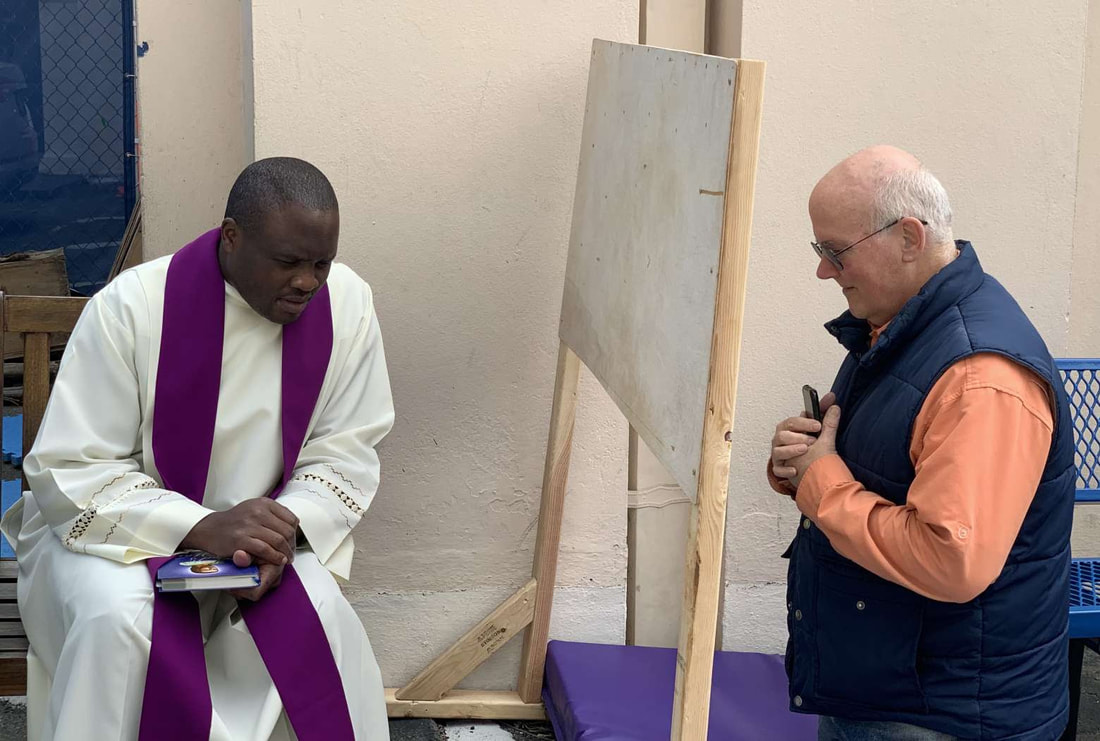Many argue that addictive drugs should be legalized because the war on drugs is failing (with even up to eight years of expensive “treatment,” 80% return to their addiction within a year). Dr. Michael Clune (author of White Out: The Secret Life of Heroin) recently made the case that the “war on drugs” fails because it relies on “treatment” rather than “recovery.” The “treatment” approach is chemical (using other drugs to overcome addiction), while the “recovery” approach is spiritual (recovering spiritual purity by calling upon a higher power). For people who deny the existence of a spiritual dimension to the human person, attempts at spiritual “recovery” are useless. But no one can deny the success rates of 12-step and other “recovery” programs.
A friend of mine was addicted to eating. When he topped 300 pounds, he signed himself into a residential recovery program, and he overcame his addiction. He’s been clean for six years. “My addiction was essentially a spiritual problem” he told me later. To enter the Kingdom, Jesus says, we must become like little children: we must recover our innocence, our childlike trust in a benevolent power greater than ourselves. For an agnostic, this is quite difficult. If you doubt the existence of a Holy Spirit, you suspect that we are alone on this lonely planet. Humanity cannot expect help from anything greater than our own technology. In Matt Damon’s words from the movie The Martian, in order to survive in a hostile environment “I’ve got to science the hell out of it.”
The Church’s task is to help people recover the freedom of the children of God. The problem is sin, the rebellion against the natural order. The solution is repentance, returning to a childlike trust in God’s will. Every priest and bishop finds this task disagreeable. Who wants to say to a smiling and supportive congregation on Sunday, “repent, you bunch of lazy sinners!”
Throughout history some Church leaders have tried to find ways to avoid teaching the hard truths of the Gospel that got Jesus crucified. In October of last year the Vatican’s “synod department” published a document calling for “a church capable of radical inclusion.” In January Cardinal Robert McElroy expanded on that idea, suggesting that the Church bless sexual acts outside of marriage, including (no surprise here) homosexual acts. In response, fellow bishops pointed out that the first word that Jesus preached was not “welcome,” but “repent.” Before we can all sit at table together, we need to clear the air: we are living in ways that contradict the Gospel. “If you love me,” Jesus said, “keep my commandments.” So the Catholic Mass begins with repentance, with Kyrie Eleison. It is necessary to wash one’s hands before sitting down for a meal.
I’m reading through the Book of Acts these days, and on almost every page, in just about every homily by the first bishops of the Church, is the call to repentance. The entire Bible, from Genesis to Revelation, is a call to repentance so that we can be in fellowship with the good God. It’s not easy. Dr. Clune said, of his own addiction to heroin, that the only way an addict can recover is to make getting clean the most important thing in his life. To succeed, he needs to ask for help from beyond himself. In Christian terms, that’s called “repentance,” and it just feels so good!
June is the month of the Sacred Heart, and today is the feast of Corpus Christi. For Catholics, June is a month of humility, when we bow before the exquisite humility of God. His Sacred Heart burns with love for the people who reject Him. He comes to us in the Holy Eucharist at every Mass, as a tiny piece of bread, and today we will walk in procession, not waving “pride” banners, but gently bearing the Holy Sacrament through the streets. While many churches in San Francisco will have “pride Masses” this month, the true Church will offer the Mass of the Sacred Heart, the Mass of divine humility. How we long to be clean, and simple, and loving like the Sacred Heart of Jesus!



 RSS Feed
RSS Feed